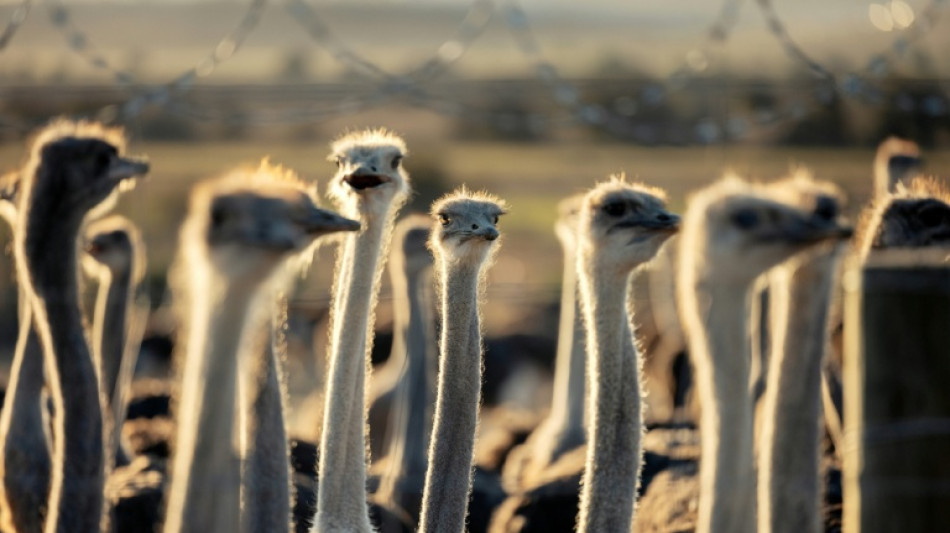

Controversial Canadian ostrich cull order will go ahead
Canada's high court on Thursday ended a months-long battle to save some 400 ostriches exposed to avian influenza that had attracted support from the likes of US Health Secretary Robert F. Kennedy Jr.
The final legal block to culling the birds was removed when Canada's Supreme Court refused to hear the case brought by the owners of the ostriches seeking to overturn a kill order.
The Canadian Food Inspection Agency said it will now move forward with "depopulation and disposal measures" aimed at mitigating the risk of further avian influenza infections, after a December 2024 outbreak killed 69 birds at Universal Ostrich Farms in rural British Columbia.
The owners of the farm had launched multiple legal appeals against the initial cull order, maintaining that the birds developed herd immunity and could have medically valuable antibodies.
"They're healthy. They are everything that we have and everything that we've loved for 35 years. They're healthy, please stop," said Katie Pastiney, the daughter of the farm owners, in a tearful plea posted to Facebook following the court's refusal to hear the case.
Since January 2025, the movement to "Save the ostriches" has attracted hundreds of in-person protesters and a swell of sympathy online, largely pushing back on government health interventions.
The mobilization went international in May when Kennedy sent a letter to the Canadian government criticizing the cull as a "potentially disproportionate measure."
In October, American billionaire John Catsimatidis, who is partially funding Universal Ostrich Farms' legal fees, called on the Canadian government to allow the US Food and Drug Administration to test the flock, raising the possibility that the birds could be transferred to the United States.
Doctors and the poultry industry track outbreaks of avian influenza to prevent the spread of the virus to other farm animals and humans.
The latest data from the Canadian government indicates 50 outbreaks of avian influenza in birds across the country in November 2025.
Since 2003, the World Health Organization has documented 900 cases of human infection with avian influenza, more than half of which have been fatal.
M.Walker--VC







